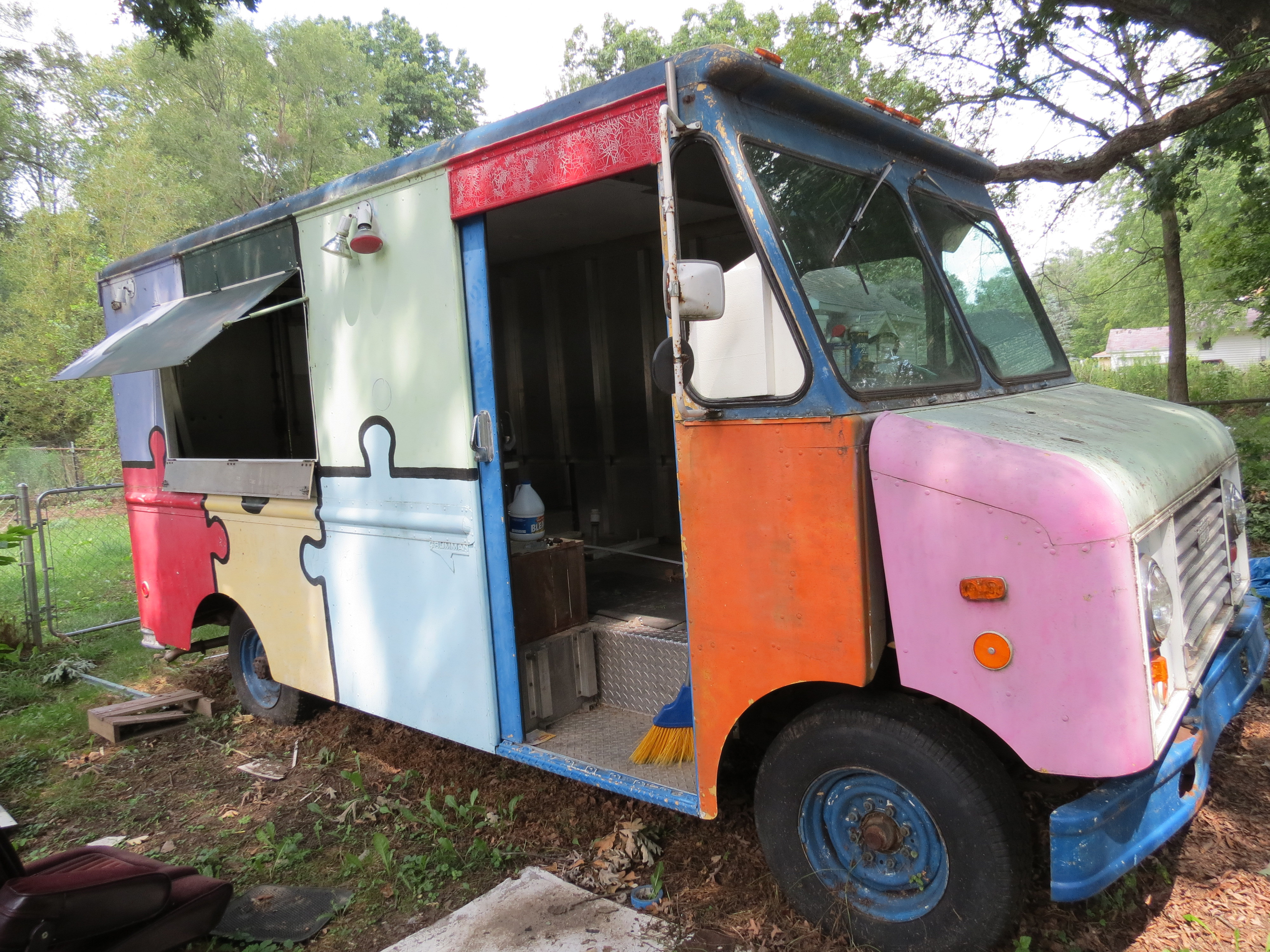Matt Askelson of Parchment is getting a truck ready to sell gourmet American cuisine. Askelson currently works two restaurant jobs in Kalamazoo. His wife was diagnosed with multiple sclerosis a few years ago and they are expecting their second child. Askelson says money is tight, but having a food truck could make his restaurant a reality.
“The initial investment of a brick and mortar place is huge. We rescued this truck, we’re building it up and I’ve got very little money into it as of right now,” Askelson says. “I think a lot of it has to do with the initial investment because if I could afford to open a restaurant, I would.”
Right now, the city of Kalamazoo only allows temporary permits for food trucks. But if the food truck ordinance passes, licensed food truck vendors could sell food on a regular basis, as long as they stay 150 feet away from brick and mortar restaurants. City Neighborhood Planner Andrea Augustine says having food trucks in places like Bronson Park would benefit entrepreneurs and fulfill a need for cheap, on-the-go food.
“We have a great food culture, but we also have a huge student population who could really benefit from lower price points," Augustine says. "And we have a lot of entrepreneurial spirit and I think a lot of that can come out with the ability to do mobile food.”
As a test, the ordinance would only allow 10 licensed food trucks to operate in the city. Pete Comensoli of Comensoli’s Italian Bistro says that would be like opening 10 more brick and mortar restaurants downtown, which could flood the market.
“They’re going to be creating food opportunities that are already available downtown and thus placing, what we feel, is an unfair pressure on existing restaurants,” says Comensoli.
Many downtown restaurant owners say they aren’t worried about the competition, but they are worried food truck vendors won’t pay their share of public expenses. Big Joe’s Pizza and Deli owner Peyton Wood:
“They’re still going to require the services of public safety. They’re still going to have issues as far as using the public streets as they’re venues. Brick and mortar businesses pay all that," Wood says. "We pay for our refuse. We pay in our taxes for public safety. If there was a provision or some way that these food truck vendors would have the same responsibility for covering public safety expenses, I think that would be a much better thing.”
The ordinance would charge food truck vendors a licensing fee of five hundred dollars. Part of that would go into the city’s general fund, which is what pays for things like public safety and street improvements. But will the costs be equal?
“No, absolutely not,” says Augustine.
Augustine says state laws would not allow the city to charge food trucks as much as property owners downtown, but she says that may just be one benefit of owning a food truck.
“I think there are advantages and disadvantages to both bricks and mortar and food trucks," says Augustine. "I think there are a lot of advantages to bricks and mortar that food trucks are never going to have. Weather being a huge one. It looks like it’s going to rain today. I think if it were going to rain today I think you’re probably going to see a lot more people in bricks and mortar than you’re going to see in a food truck. And there’s also just a food truck season. My understanding is April-ish to October/November is really the prime for food trucks to have people coming to them.”
Cities all over the state are trying to figure out how, or if, food trucks can fit into their communities. One city that doesn’t allow food trucks in their downtown area is Holland. Holland’s mayor Kurt Dykstra says historically, the city added features to their downtown area—like hot water tubing to melt snow off the streets—which led to higher taxes for brick and mortar businesses.
“There was concern that the area is incredible attractive and therefore would be a place that people like mobile food carts might want to come into and enjoy the benefits without contributing to the costs,” Dykstra says. “Relatively near future that could change and could be modified. Because I think attitudes toward mobile food carts have changed and continue to change, even in the past few years. So we’re looking at the issue like many other cities across the country are.”
The city of Kalamazoo will hold a public hearing to discuss the food truck issue Monday at 7pm.

